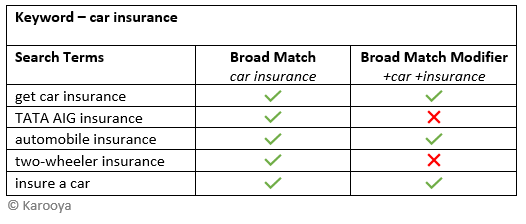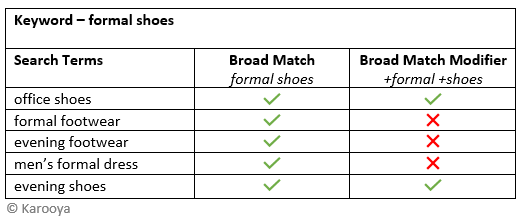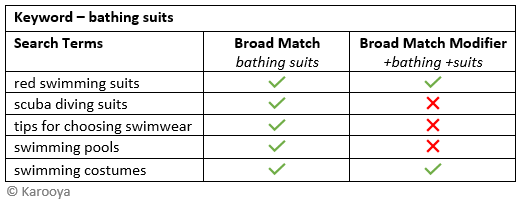Broad and broad match modifier, might appear to be same, but are totally different in their functionality. Here we discuss what differentiates one from the other.
Lets first understand what each of these match types do:
Broad Match – It allows the ad to show when the keyword is present anywhere within the search query. Also, Broad match show for all close variants of the term as well as synonyms.
Broad Match Modifier – This match type will trigger your ads if the keywords are present in the search query in the exact or close variant form. To add your keyword as BMM you need to add a ‘+’ sign in front of it. This is to demarcate that the keyword needs to necessarily be part of the search query.
Earlier BMM would not show ads for any synonym, but after a recent change, they will show for related searches too. (Exact match, broad match modifier, and phrase match keywords now also match to words within the search query that share the same meaning as the keyword)
[Update as on 14th July 2021] – Starting in late July, advertisers will no longer be able to create new broad match modifier keywords. Read about the update here.
This might make you wonder, how the two match types will be different. Broad match is more generic and BMM is more close to its nature of being more precise.
Lets take a few examples to understand how each match type will trigger your ad:
Example 1:
Example 2:
Example 3:
Important Note
Google Ads treats broad match as the default type. So, while adding your keywords make sure that you change the match type, if you don’t wish to add it as the broad match type. Also, if you are not sure about using the broad match type, then replacing it with BMM is a safer bet to take instead, as it is less generic than the other match type in question here.
Related Links:








Stop the wasted ad spend. Get more conversions from the same ad budget.
Our customers save over $16 Million per year on Google and Amazon Ads.